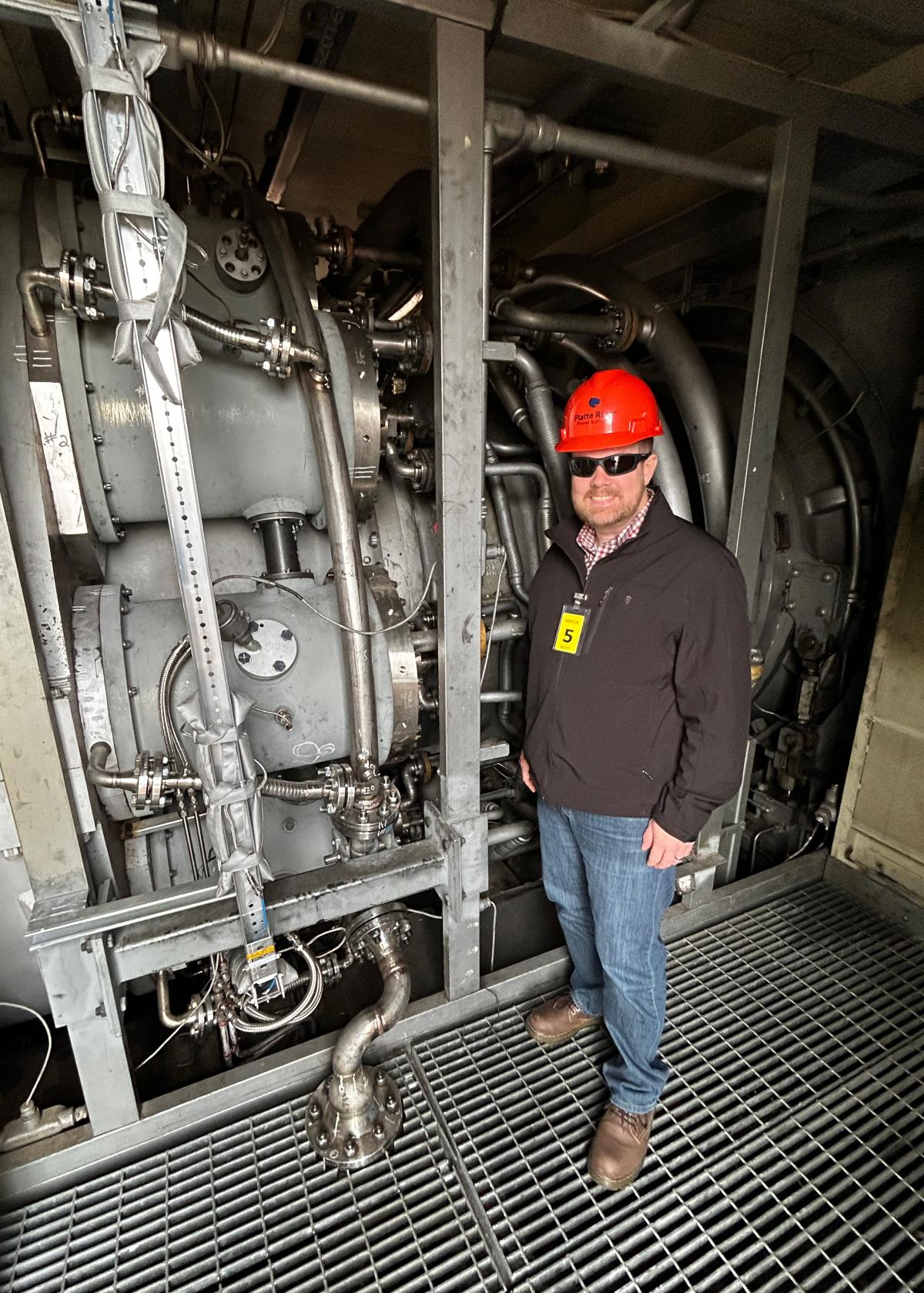AE alumni awarded the prestigious George Westinghouse Silver Medal
Bobby Noble, MSAE 2006, has been selected by the American Society of Mechanical Engineers (ASME) for the 2024 George Westinghouse Silver Medal in recognition of his achievement in the power field of mechanical engineering.
The George Westinghouse Silver Medal is a prestigious honor awarded to those under 45. It encompasses a wide range of contributions, including application, design, development, research, use, and the organization of activities related to power. Since its inception in 1972, only 34 individuals have been awarded the medal, which is a testament to the exceptional work of its recipients.
“To be in the company of Ben T. Zinn, Frédéric Villeneuve, and Tim Lieuwen and to represent Georgia Tech is a great honor. It's humbling for me to receive this award from ASME, knowing all the great things coming out of the School of Aerospace Engineering. It’s also a major career highlight for me to get this international recognition,” Noble said.
A Noble Past
After earning his degree, Noble became a research faculty member at Georgia Tech. He gained valuable information about alternative fuels, specifically hydrogen fuels, aiding Lieuwen’s research group. Their efforts on hydrogen-related combustion issues for gas turbines, a critical area in the field of power generation, have been instrumental in advancing our understanding and application of these fuels.
He attributes his career's success to the profound influence of professors like Zinn, Lieuwen, Jerry Seitzman, and Jeff Jagoda, as well as his work in the Ben T. Zinn Combustion Lab.
“Early on, I realized that being at Georgia Tech, I was surrounded by the best of the best in the world,” he stated.
Lieuwen served as his thesis advisor, which was critical in developing his knowledge and insights into gas turbines.
“Delighted to see Bobby’s important contributions in realizing a clean energy future recognized by ASME – Bobby’s work on deploying large-scale hydrogen demonstration pilots for the power generation sector has been particularly impactful, and we are proud to see our alumni paving the way,” Lieuwen commented.
In 2003, while in Lieuwen’s research group, they began working on syngas, a coal-derived fuel with a high hydrogen content potential. They started using up to 100% hydrogen back then and received Department of Energy awards for twelve years. They expanded their research and started looking specifically at hydrogen natural gas blends and what to expect from different combustor configurations.
“My time at Georgia Tech set the stage for my research direction and transitioned well into my work here at EPRI,” Noble said.
Keeping the Lights On
In today’s world, electricity is a necessity. However, we must meet looming decarbonization mandates to protect our planet. The United States and countries abroad have set very aggressive decarbonization plans with some deadlines as early as 2030, but we still need electricity. One key way to meet both needs is by using gas turbines already operating in the field. Noble’s areas of specialization are in decarbonization for gas turbines. His team has led some of the most groundbreaking hydrogen blending demonstrations ever performed.
“These cutting-edge demonstrations show that we can start to work towards using low-carbon fuels and gas turbines, and they have had a major impact in the field. They are proving that there is a pathway and possibility for using low-carbon fuels in a reliable and safe manner while meeting emission requirements for other pollutants,” Noble said.
In fact, his first one for dry low NOx tech happened here in McDonough, Georgia. The units they were operating there supplied electricity to the Atlanta area.
“The collaboration at that time was a significant milestone, involving the Electric Power Research Institute (EPRI), Georgia Power, Southern Company, and Mitsubishi Power,” Noble explained. The joint efforts of these three primary entities demonstrated the feasibility of blending up to 20.9% hydrogen into an active gas turbine, using units that supply electricity to the metro Atlanta area daily.”
He is still teaming up with Lieuwen and Professor Wenting Sun.
“We have some active projects with DOE sponsorship looking at ammonia for gas turbines, and we are thinking about an additional low-carbon fuel that we could potentially utilize within gas turbines.
Noble currently works for EPRI and lives in North Carolina. He has earned multiple patents on various gas turbine technologies and has written many papers detailing his research, which is being applied internationally.

Bobby Noble, MSAE 2006

Ben T. Zinn Combustion Laboratory

Site Visit Bobby Noble
AE’s History with the Award
In the same year, Noble graduated from Georgia Tech, Professor Emeritus Ben T. Zinn received the George Westinghouse Gold Medal. Four years later, Professor Timothy C. Lieuwen was honored with the Silver Medal, and then in 2018, he was awarded the Gold Medal. Frédéric Villeneuve, MS AE 03, PhD AE 07, currently at Blue Origin, received the award in 2017.